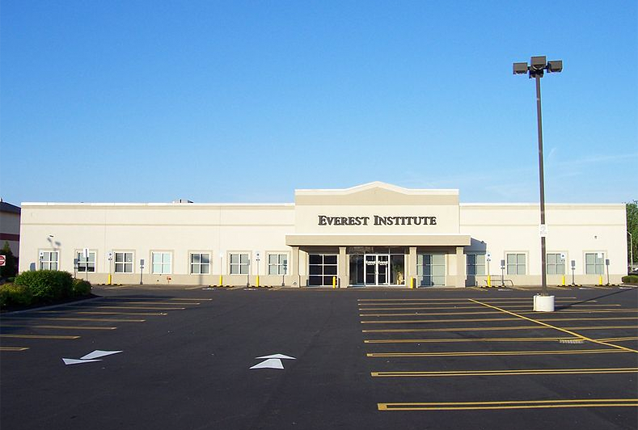Last week, the Consumer Financial Protection Bureau announced that it is suing Corinthian Colleges for illegal predatory lending and debt collection practices and is calling for all private student loans they issued to be forgiven. While this is a huge step forward in protecting student debtors holding private student loans, the Department of Education has failed to intervene in the same way with federal student loans. The following piece by Americans for Financial Reform explains more about how Corinthian Colleges used predatory practices to pile student debt on those attending its colleges and how the Consumer Financial Protection Bureau is stepping up to protect students.
On September 16 the Consumer Financial Protection Bureau announced that it is suing Corinthian Colleges over illegal predatory lending and debt collection practices. The CFPB’s lawsuit provides clear evidence that Corinthian used bogus job placement claims to induce students to enroll and take out costly private loans – loans the company knew most students would be unable to repay. The lawsuit demands an end to these practices, and forgiveness of more than 130,000 private loans made to students since July 2011, including more than $500 million in outstanding debt.
Given the overwhelming evidence that students enrolled and took on debts based on the corporation’s false and misleading claims, AFR members, including TICAS and NCLC, have welcomed the lawsuit. We have also wondered why federal loans to these students should not also be forgiven – something that would require action by the Department of Education.
With more than 100 campuses across the country, Corinthian is one of the largest for-profit, post-secondary education companies in the United States. The CFPB’s investigation found that the school was making false and deceptive representations about career opportunities which led students to enroll and take out private loans with high interest rates. After loans were originated, the school was using illegal tactics to collect on those loans while students were still in school.
The Bureau’s complaint against Corinthian details a number of remarkably abusive practices, including:
- Corinthian’s business model has been to target vulnerable potential student prospects, and mislead them both about the school and about the loans. A 2011 survey of campus operations showed that over 57% of students had household incomes of $19,000 or less, while 35% had household incomes of $10,000 or less.
- Under federal law, for-profit colleges cannot receive more than 90% of their revenue from U.S. Department of Education aid. In order to meet this requirement and continue to operate off of DOE revenue, the school deliberately inflated tuition prices to exceed federal loan and grant limits, which created a “funding gap” so that students had to take out private loans. Corinthian then steered students toward private loans to fill gap that the school essentially created. These private loans, known as Genesis loans, added significantly to students’ debt burdens.
- In marketing these private loans, Corinthian did not tell students that the college had a financial interest in them, when in fact it did. Corinthian then took aggressive action to collect on the loans, including pulling students out of class to publicly shame them for not paying back loans.
- The loans had extremely high interest rates. In 2011 interest rates for Genesis loans were 14.9% with an origination fee of 6%, while interest rates for federal student loans were 3.4% to 6.8%, with a 1% origination fee. Corinthian continued to make these high-cost loans even though it knew that most students would have no way to repay them. To date, more than 60% of students with Genesis loans have defaulted on them within three years.
- Corinthian lied about its job placement rate, in order to maintain accreditation and eligibility for Title IV aid, and induce students to enroll and take out its private loans. The college cited these falsely reported their job placement rates in marketing materials and in documents submitted to accreditors. At a Decatur, GA campus, school employees created fake employers and reported students as having been placed with them, increasing placements rates substantially. Corinthian also paid employers to temporarily hire graduates, with one campus organizing a company to employ graduates for two days at a health fair, and then counting those students as “placed” in order to increase placement rates.
- Corinthian misrepresented how well students would do after graduating from its program to entice students into enrolling and incurring debt. The college trained its admissions representatives to pressure students who were also parents by telling them that enrolling in a program was their best or only chance to help their children. It also trained admissions representatives to falsely tell prospective students that classroom seats might not be available in the future, pressuring students to sign up immediately for classes and take on Genesis loans.
This post originally appeared on the Americans for Financial Reform website.







